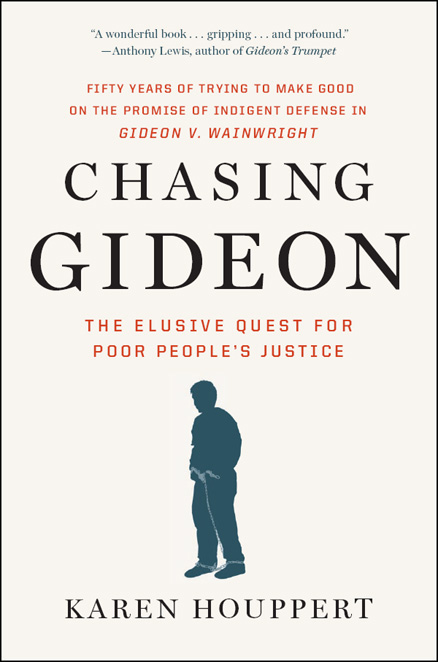
Chasing Gideon
The Elusive Quest for Poor People's Justice
کتاب های مرتبط
- اطلاعات
- نقد و بررسی
- دیدگاه کاربران
نقد و بررسی

February 1, 2013
A journalist explores the quality of indigent defense 50 years after Gideon v. Wainwright mandated adequate counsel for any person charged with a felony. Washington Post Magazine contributing writer Houppert (Home Fires Burning: Married to the Military--for Better or Worse, 2005, etc.) concedes that her book is an update on the nonfiction classic by Anthony Lewis, Gideon's Trumpet (1964). Houppert focuses on four defendants represented by appointed lawyers. One of those cases is that of Clarence Earl Gideon, who appealed for defense counsel despite his poverty after his 1961 arrest in Panama City, Fla. The other cases are more contemporary: teenager Sean Replogle in Spokane, Wash., after he was charged with vehicular homicide; Gregory Bright in New Orleans, where he was convicted of a 1975 murder he did not commit; and Rodney Young in Georgia, where he was sentenced to death despite his apparent mental retardation. Houppert demonstrates that most public defenders are dedicated lawyers but face severe disadvantages due to overwhelming case loads, inadequate budgets for expert witnesses and the like, as well as the nature of the criminal justice system, which often emphasizes the desirability of a plea bargain instead of taking a case to a full trial by judge or jury. While Lewis sounded optimistic about the development of high-quality defense representation for the indigent in the wake of the Supreme Court ruling, Houppert is more pessimistic. Her research shows that defendants are regularly being denied their legal right to a strong lawyer with enough time and resources to function at the highest level. After all, indigent defendants do not have an organized lobbying group to compete for meager local, state and federal government resources, especially in recessionary eras. A well-researched and -written investigation that shows the inadequacies in stark human terms rather than as an abstraction.
COPYRIGHT(2013) Kirkus Reviews, ALL RIGHTS RESERVED.

Starred review from February 15, 2013
Fifty years ago, the U.S. Supreme Court guaranteed in Gideon v. Wainright the right to free counsel to all defendants facing the possibility of imprisonment if they were unable to procure it themselves. Today, more than 80 percent of defendants are represented by public defenders. Here, Houppert (contributing writer, Washington Post Magazine; Home Fires Burning: Married to the Military--for Better or Worse) takes up the call of Anthony Lewis's classic Gideon's Trumpet and examines what has changed--and what has not--in the past five decades. What results is a stinging indictment of a system of indigent defense, a widespread failure that, the author claims, dooms the nation's poor to being represented by insufficient counsel, unwise plea bargains, and wrongful convictions. Houppert examines public defense systems in Washington, Louisiana, and Georgia and follows illustrative cases: a teenager facing vehicular manslaughter charges, a prisoner who has served nearly 30 years for a crime he did not commit, and a defendant facing the death penalty. VERDICT Fluent and fluid, Houppert's book has all the urgency this subject demands and is a page-turner. Alternately thrilling and gut-riling, this book will grab and hold lovers of great nonfiction. Highly recommended. [For more on this title, see Editor's Picks on page 35.--Ed.]--Molly McArdle, Library Journal
Copyright 2013 Library Journal, LLC Used with permission.

























دیدگاه کاربران